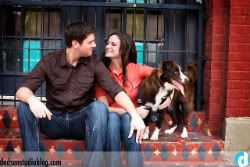I'm sure you are all vaguely familiar with the concept of being "on call," but I will clarify just in case....
I am actually the person on call for our team at UK every day from 7 am to 5 pm, but there is always someone on call overnight as well. On Monday July 5, I had my first overnight call. In Urology, we have home call, which means we can take calls from home rather than having to stay at the hospital for 24+ hours. This sounds like a blessing, but can be a curse: imagine being called to see a patient in the emergency room at ten at night, going home, then having to come back to the hospital when one of your patients starts having chest pain and needs a full work-up to rule out heart attack. You end up either spending quite a bit of time driving back and forth, or if you're lucky, sleeping in your own bed with no interruptions. My first overnight call was the latter vs. the former; however, I was so paranoid to miss a page that I kept waking up every half hour or so to check my pager! So much for enjoying a night of uninterrupted sleep....
I have no crazy stories or anecdotes about my time on call at the hospital, but there was the Panera Bread Co. incident: Chad and I met for lunch at Panera that day (I only had weekend-type duties since it was a federal holiday, so I was done with my in-house responsibilities for the day), and we were just about to leave when I had my first someone-in-public-requires-medical-assistance-and-I'm-the-only-doctor-around moment. A woman two tables away from us starts having a grand mal/tonic-clonic seizure, and her lunch companion was at a loss for how to handle the situation. In a much calmer manner than I had imagined I would behave in such an incident, I moved the woman into a lateral lying position and waited for her to stop seizing while instructing her friend to call for help. And that was it. I really did nothing other than keep her head from hitting the floor repeatedly. She has chronic seizure disorder, and required no further treatment other than going home to "sleep it off." I had always imagined a public situation that would require chest compressions or rescue breaths, so I was thankful that wasn't required! And also very thankful that Chad was there to help in case something more serious had happened. The weird thing is, I felt like I needed to document the incidence afterwards. I guess that's what the hospital will do to you: document, document, document! I am definitely becoming accustomed to all the paperwork involved in modern healthcare.
Sunday, July 11, 2010
Subscribe to:
Comments (Atom)





